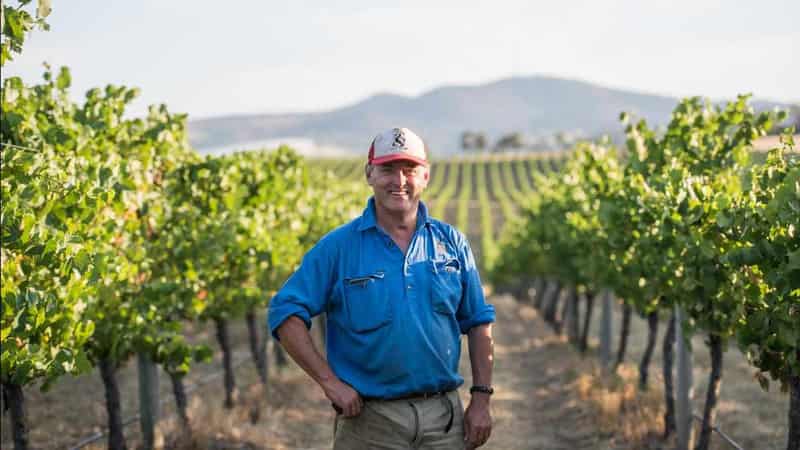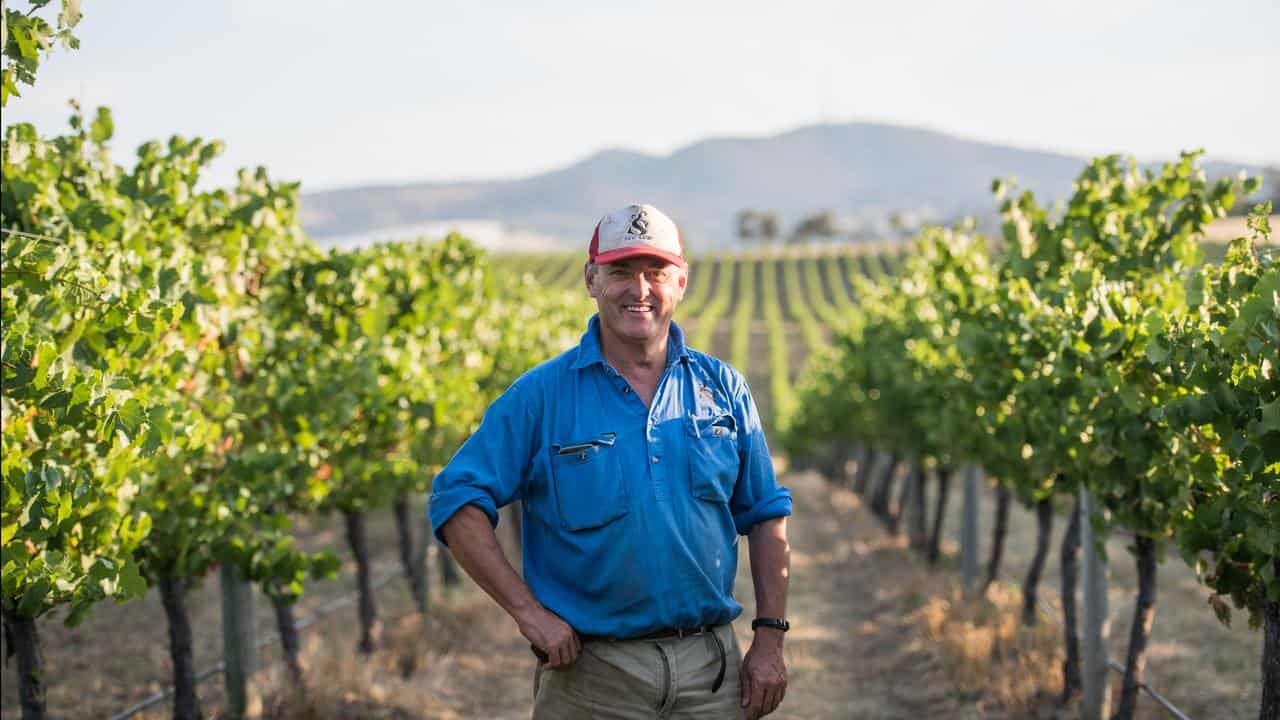
Chardonnay sippers and riesling revellers might have to find a new tipple with a changing climate threatening to consign some grape varieties to the past.
See Saw Wine founder Justin Jarrett reckons it's only a matter of time before the beloved varieties and others like sauvignon blanc are forgotten in the face of warming temperatures and drier conditions.
Varieties more accustomed to cooler, moist climates are struggling across various regions, the Orange-based grape-grower said.
"Over time, someone might say they used to drink a riesling ... but they (won't) exist anymore because it'll be too warm to grow them," Mr Jarrett told AAP.
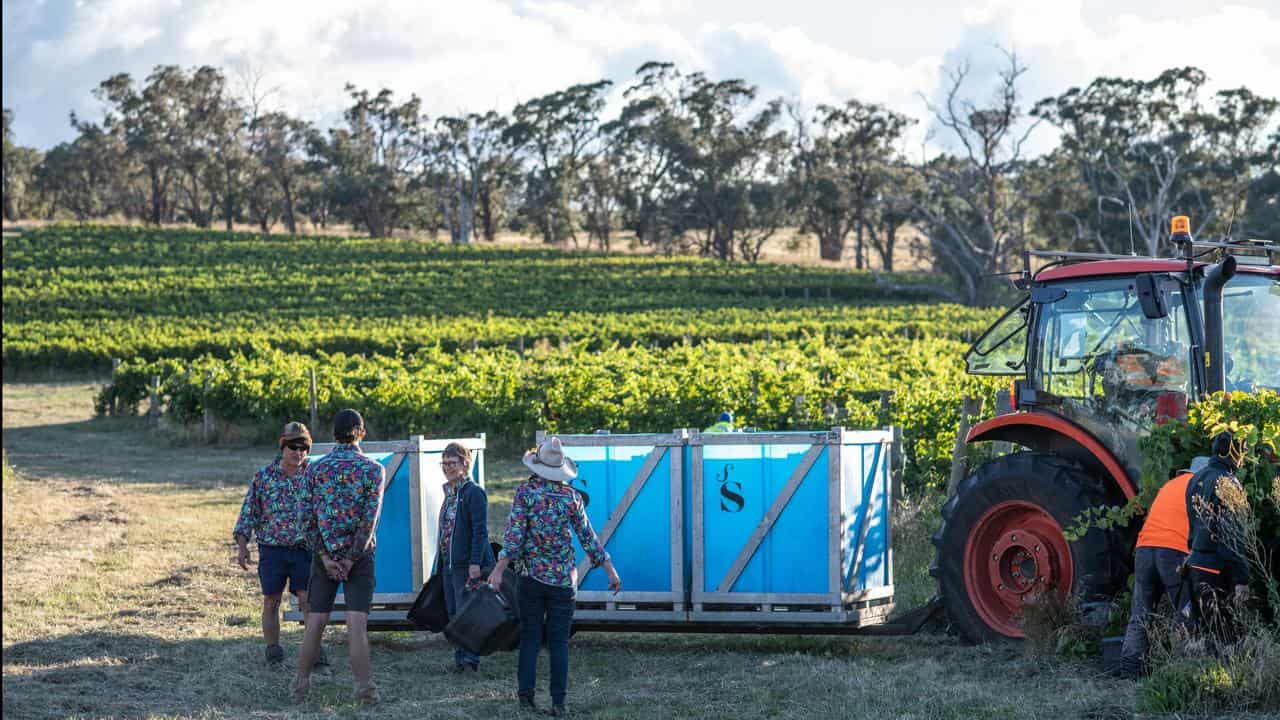
A harvest once lasted eight-to-nine weeks but is over in six weeks these days, he said, which builds more pressure to get things done quickly.
Wineries have to be adjusted to handle the intake of fruit in a very quick period of time.
"Your systems have to be tighter because you can't afford breakdowns," Mr Jarrett said.
He and his wife Pip own three certified-organic vineyards in the Orange highlands on differing elevations at 700m, 800m, and 900m.
The vineyards already experience a "natural climate change", Mr Jarrett points out, due to varying temperatures at the different altitudes impacting the grapes' growth and quality.
"As you come down ... it gets hotter, and if you're going up, it gets cooler," he said.
"So we actually see all the time what effect it's going to have on wine styles, and the quality of varieties."
Winemaking needs to be more adaptable, Mr Jarrett believes, but he's all too aware that costs money and says consumers will eventually need to accept a price-hike in bottle shops.
"The wine industry as a whole is seeing a reduction in consumption, and part of that is people wanting a healthier lifestyle, and the other part of it is the cost of living," he said.
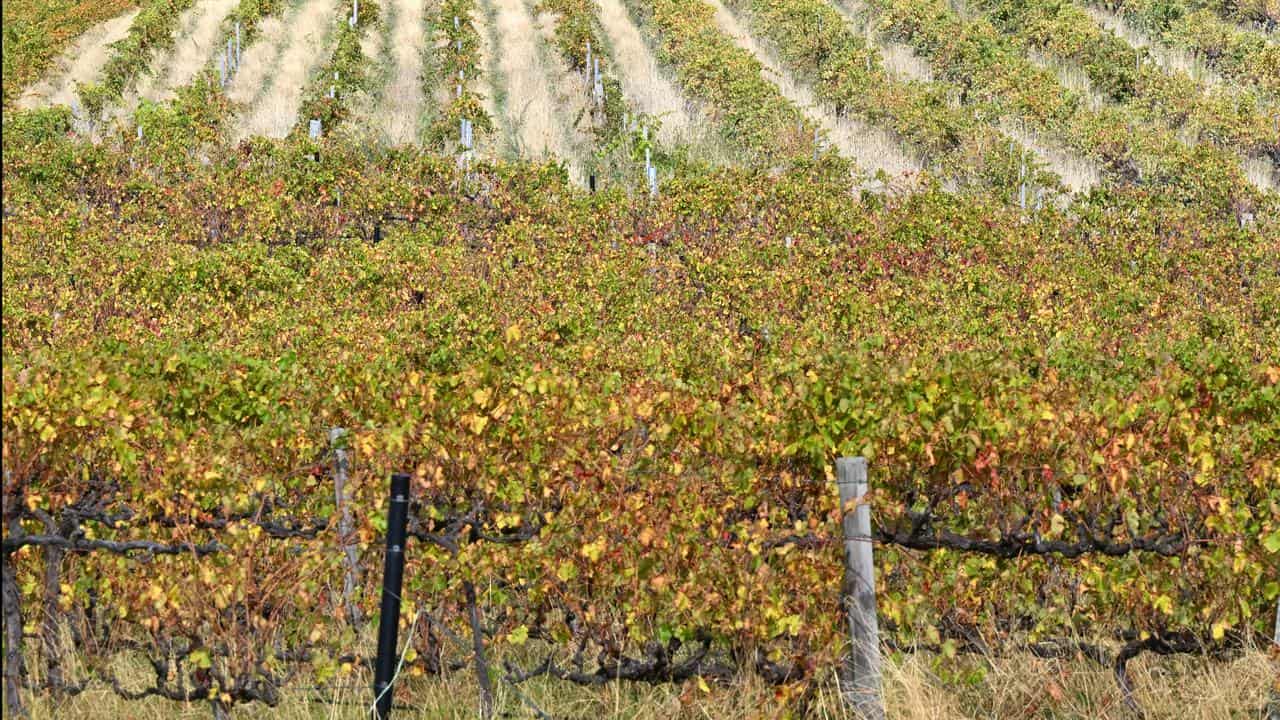
The differences between the varieties is narrowing as everything ripens at once, Wine Australia's Sharon Harvey said, which strains the winery's time and resources.
This effect is called vintage compression.
"Also investing in additional winery infrastructure isn't really feasible ... and it's created some logistical problems for us," Dr Harvey added.
As a result, grapes can hang on the vine for too long, are harvested a bit too late, or get stuck sitting in queues of trucks.
The future down under is Mediterranean, according to Dr Harvey, as a warming climate calls for more adaptive grape varieties already accustomed to higher temperatures.
Replanting vineyards with grape varieties better suited to both current and future conditions - such as drought tolerance - is a longer-term management strategy.
Varieties grown in countries like Spain and Italy, such as tempranillo, are known to be more resilient to climate extremes or high temperatures.
University of Melbourne wine and viticulture lecturer Billy Xynas is investigating water addition in the fermentation process to offset the effects of warming conditions.
One issue born from warming temperatures is more sugar accumulation in the harvest, meaning more alcohol as sugars are converted by yeast during the fermentation.
"To some that might sound like a great thing - more alcohol - but actually, what we see is that consumers have an aversion to excessively alcoholic wines both for taste and health," he said.
The short-term strategy can help alleviate some of the stressors wine producers are facing, Mr Xynas said of his project, which encompasses research in adaptive wine-making strategies in changing climates.
"This is an effective, great cost-saving strategy to produce wines with more desirable alcohol levels, but I think more importantly produces a wine that people want to drink," he said.
"Producers also wouldn't need to grow or buy quite as much in terms of grapes to produce the same amount of wine."
The study is so far limited to shiraz production, selected as it's the most planted red grape variety in Australia and recognisable to many consumers.
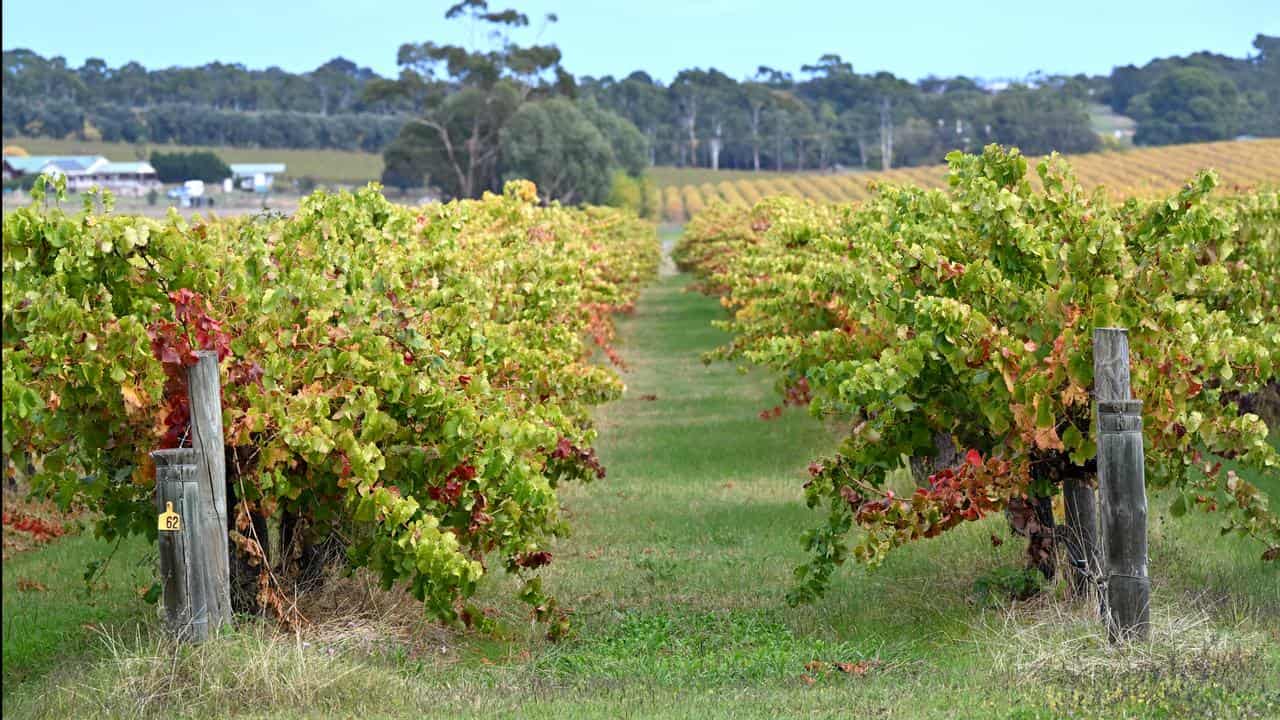
Despite the damage born from climate change, sommelier Louella Mathews is in awe of the innovation and unity it has stirred across the Australian wine sector.
"You can see the different regions are now learning and kind of working together, and you know that comes with community as well," she said.
"They're working together to see what champions which region."
Dr Harvey has noticed an urgency in expanding the conversation so it's not just about adaptation, but also mitigation, such as reducing the emissions that cause climate change.
Mitigation is an equally important issue for the sector, Mr Jarrett agreed, encouraging the industry to be more mindful of sustainable practices when it comes to packaging and reducing transport.
